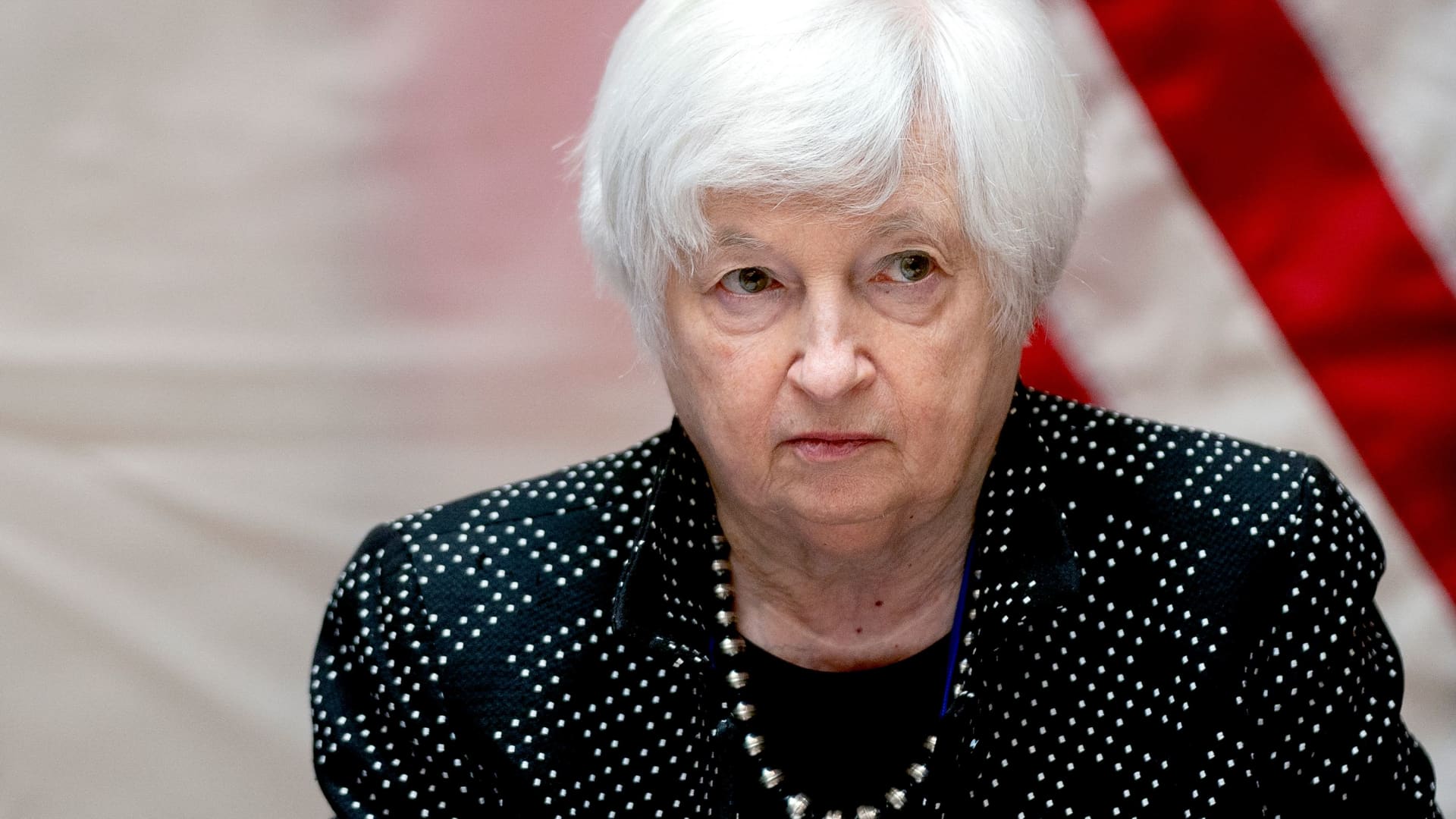
US Treasury Secretary Janet Yellen listens during a signing ceremony for the Indonesia Infrastructure and Finance Compact, at the International Monetary Fund (IMF) headquarters in Washington, DC, on April 13, 2023.
Stefani Reynolds | AFP | Getty Images
WASHINGTON — Treasury Secretary Janet Yellen on Monday warned that the United States may run out of measures to pay its debt obligations by June 1, earlier than the government and Wall Street had been expecting.
In a letter to House Speaker Kevin McCarthy, Yellen said new data on tax receipts forced the department to move up its estimate of when the Treasury Department “will be unable to continue to satisfy all of the government’s obligations” to potentially as early as June 1, if Congress does not raise or suspend the debt limit before that time.”
This date is earlier than Wall Street economists were expecting. Goldman Sachs’ latest estimate this week put the deadline at some point in late July, though the bank’s economists acknowledged that weaker-than-expected tax receipts could move that timeline up further.
The Congressional Budget Office also revised its estimate for the so-called X-date on Monday.
“Because tax receipts through April have been less than the Congressional Budget Office anticipated in February, we now estimate that there is a significantly greater risk that the Treasury will run out of funds in early June,” wrote CBO director Phill Swagel.
The combination of Yellen’s letter and the new CBO estimate added a fresh sense of urgency to stalled negotiations between President Joe Biden and McCarthy’s Republican majority in the House.
While there is technically a month between the date of the letter and the earliest X-date, congressional calendars showed Monday that there are only eight legislative days this month during which both the House and Senate are in session at the same time.
This could significantly impact any effort to hammer out a last-minute deal in person on a debt ceiling hike that could win enough support to pass in the Republican-controlled House and the Democratic-led Senate.
McCarthy was in Israel on Monday, where he delivered an address to the Knesset, the nation’s parliament.
The White House has so far refused to participate in talks as long as McCarthy insists on linking a debt ceiling vote to Republican plans to make sweeping cuts to federal spending.
There were early indications Monday that Yellen’s warning might not succeed in jolting Democrats and Republicans in Congress out of their present blame game mode and into negotiation mode.
“Republicans’ failure to agree to cleanly raise the debt ceiling has brought the United States to the brink of economic catastrophe,” said Democratic Senate Budget Committee chairman Sheldon Whitehouse, R.I., in response to Yellen’s letter.
Yellen’s letter comes less than week after a Republican bill to raise the debt limit and slash government funding passed the House, but only after McCarthy made 11th hour changes in order to win over GOP holdouts.
Earlier in the day Monday, Senate Majority Leader Chuck Schumer tore into the House GOP bill, accusing Republicans of having “made default more likely by locking the House into an unacceptable and very extreme position, and pulling us even further apart.”
The Goldman Sachs estimate noted that so far there have been few ripples in the markets from rising debt-related risk. But this could change, analysts wrote, “once the Treasury announces a specific deadline for Congress to raise the debt limit.”
–CNBC’s John Melloy contributed to this story.
